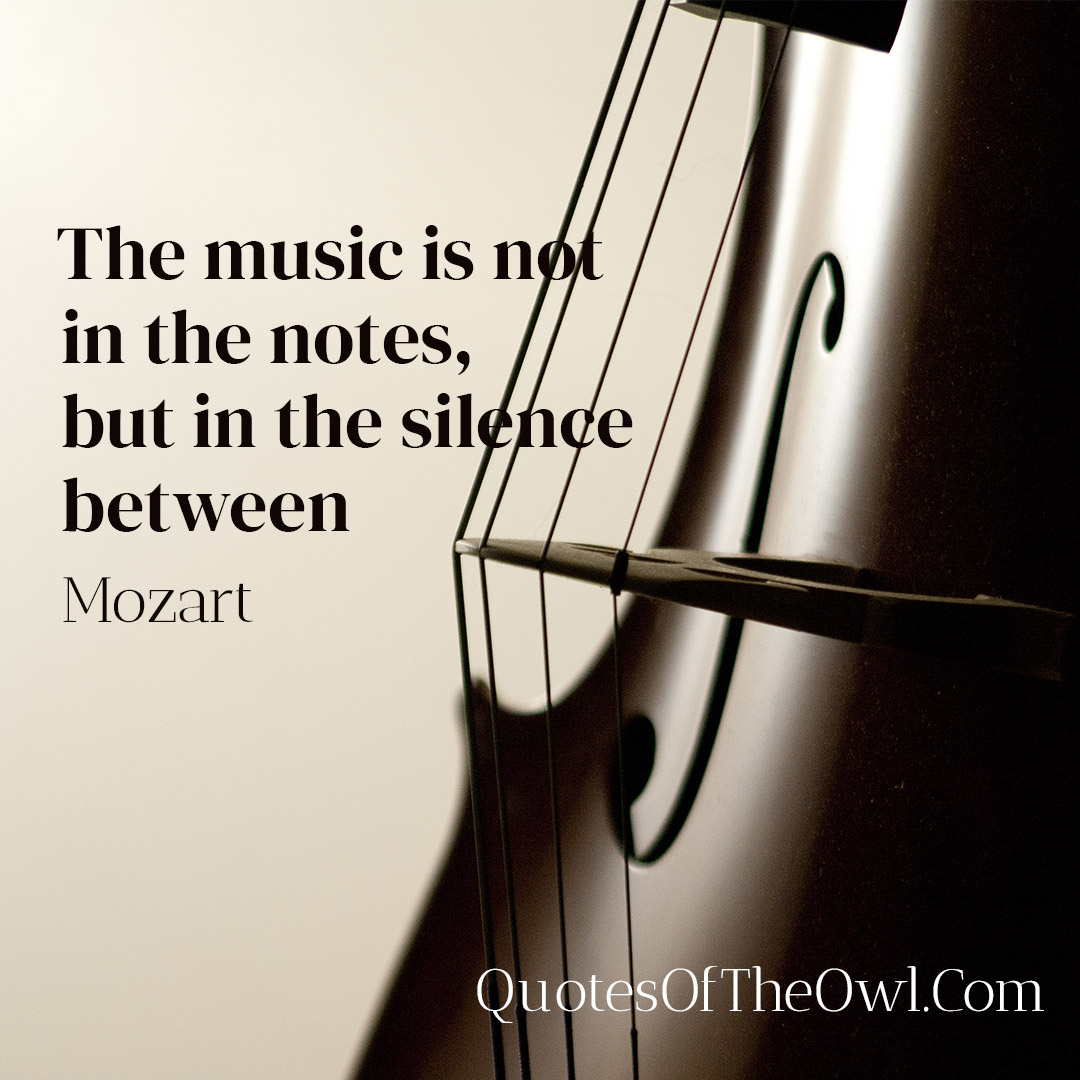Discover the true brilliance behind Mozart’s iconic quote “The music is not in the notes, but in the silence between”
Wolfgang Amadeus Mozart is one of the most influential and renowned composers of classical music in history. His music is known for its incredible complexity, beauty, and emotion, and has been enjoyed by people all over the world for centuries. One of his most famous quotes is “The music is not in the notes, but in the silence between”, which has been widely discussed and analyzed by music enthusiasts and scholars alike. In this article, we will explore the meaning behind this iconic quote and its significance in the world of music.
The Context of the Quote
Mozart made this statement during a conversation with his friend and fellow composer, André-Henri Constant van Rumigny, in the year 1782. The two were discussing the art of composing music, and Mozart expressed his belief that the true essence of music lies not only in the notes themselves, but also in the spaces between them.
The Importance of Silence
Silence is an essential element in music, just as important as the notes themselves. The strategic use of silence can create tension, anticipation, and release, and can also give the listener time to absorb and reflect on the music. In many ways, silence can be thought of as the canvas on which the notes are painted. Without silence, music would simply be a wall of sound with no distinction between individual notes or phrases.
The Role of Interpretation
Another key aspect of Mozart’s quote is the idea that the music is not only in the notes, but also in the interpretation of the performer. Each performer brings their own unique perspective and personality to the music they play, and this can greatly affect how the listener experiences the music. The use of silence can also be interpreted differently by different performers, adding even more depth and nuance to the music.
The Emotional Power of Music
Mozart’s quote also speaks to the emotional power of music. While the notes themselves are important, it is the emotions and feelings that they convey that truly make music special. By using silence strategically, composers and performers can create moments of intense emotion and beauty that can move listeners to tears, laughter, or any number of other emotional responses.
The Legacy of Mozart’s Quote
Mozart’s quote has had a profound impact on the world of music, inspiring countless composers, performers, and music lovers over the centuries. It is a reminder that music is not just a collection of sounds, but a powerful form of expression that can touch the hearts and souls of people from all walks of life. It is also a call to all musicians to embrace the power of silence and use it to create music that is truly transcendent.
The importance of silence in daily life
Silence is a crucial aspect of daily life that is often overlooked. In today’s fast-paced and noisy world, it’s easy to become overwhelmed and stressed. However, taking the time to appreciate the value of silence can provide numerous benefits for our physical and mental well-being.
One of the most significant benefits of silence is that it helps to reduce stress levels. When we’re constantly bombarded by noise and information, our bodies and minds can become exhausted, which can lead to increased anxiety and tension. However, by taking a few moments of silence each day, we can allow our minds to rest and recharge, which can help to reduce stress and promote relaxation.
Silence also provides an opportunity for self-reflection and introspection. When we’re surrounded by noise and distractions, it can be difficult to focus on our inner thoughts and emotions. However, by taking a few minutes each day to sit in silence, we can tune out external stimuli and focus on our internal experiences. This can help us to gain a better understanding of our feelings and motivations, which can lead to personal growth and development.
Furthermore, silence can improve our relationships with others. When we’re constantly talking and filling the air with noise, we may miss out on important nonverbal cues from those around us. By embracing moments of silence, we can become more attuned to others’ body language and emotions, which can help us to better understand and connect with them.
In addition, silence can be a source of creativity and inspiration. When we’re constantly surrounded by noise and stimulation, our minds can become cluttered and overwhelmed. However, by taking a break from external stimuli and allowing our minds to wander in silence, we can tap into our creativity and come up with new ideas and insights.
Conclusion
In conclusion, Mozart’s quote “The music is not in the notes, but in the silence between” is a timeless reminder of the importance of silence in music and in life. By embracing moments of silence, we can create a more impactful and meaningful musical experience, and live a more mindful and fulfilling life. Mozart’s quote challenges us to appreciate the beauty of silence and to embrace its power in our daily lives.

